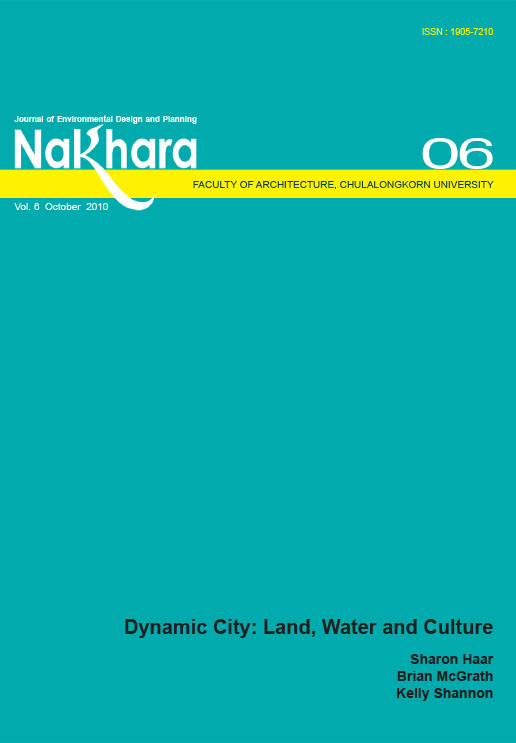A Water Field Civilization: The Shifting Rural Territories of Taiwan
Main Article Content
Abstract
The Taiwanese countryside is representative of Asia’s ‘hydraulic civilization’ and has a society based
upon a water-orientated productive landscape. Its irrigation system of paddy fields and fish ponds
is strongly interrelated to society’s collective units, such as families or unions, which, in turn, structure social morals and behaviors. In a comparison of three different agriculture plains in Taiwan, interpretative maps reveal differences in the settlement patterns related to topography and water resource management. The critical reading of historical documentation and creation of interpretative maps reveals how early settlers solved water threats and managed to stabilize water sources. The study proposes a present-day reorganization of the water structure and re-valuation/utilization of the ecological value of paddy fields, through a design research proposal of a new r/urban landscape model that combines high density food production, flood control and water purification.

